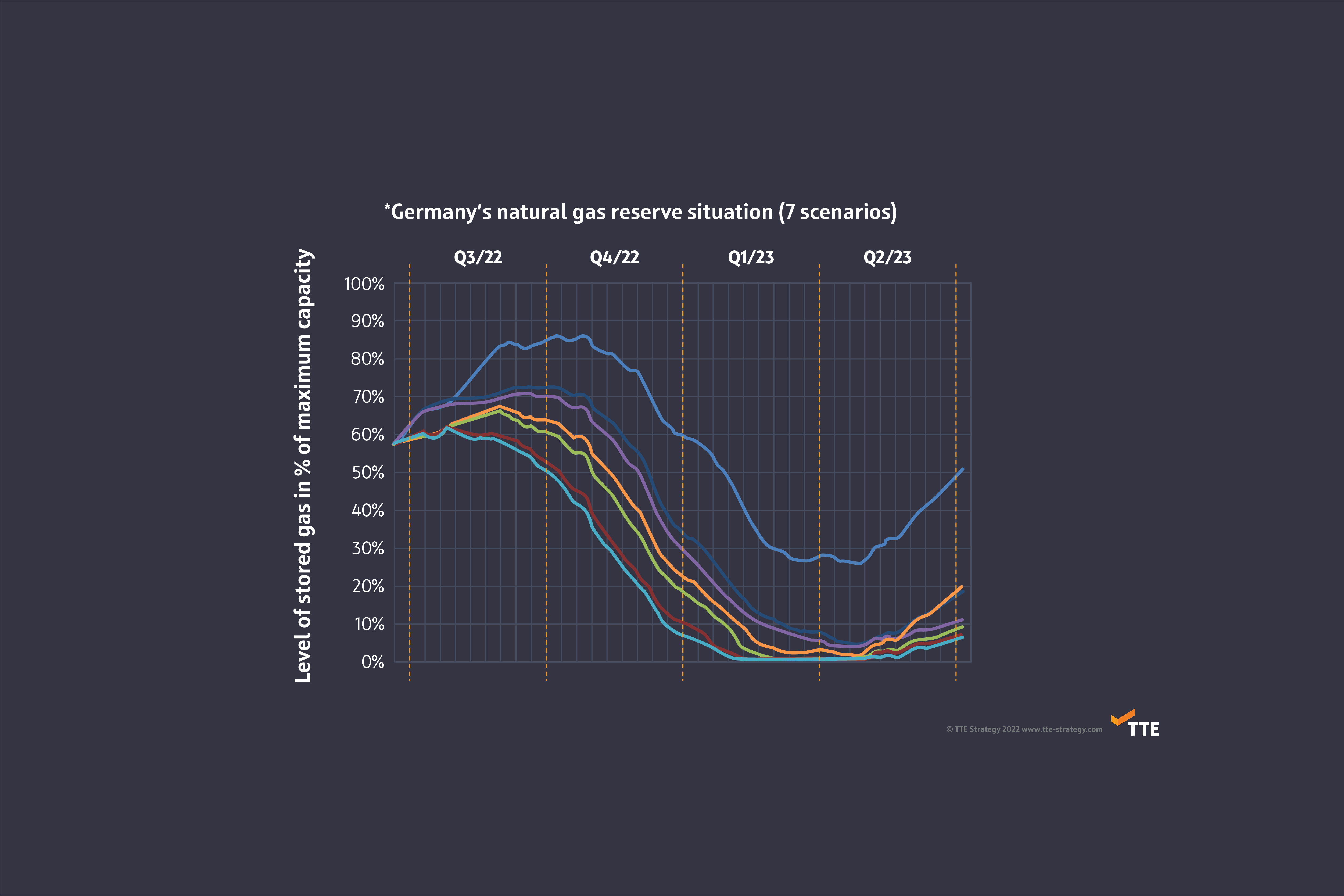
Gas shortages: how companies can overcome the impending supply crisis
The Covid-19 pandemic, supply bottlenecks, and a looming gas crisis: companies are currently facing challenges the scale of which is hard to determine.
Industrial operations reliant on natural gas are especially heavily impacted by this – because alongside a continuous increase in prices, gas as a resource could become so scarce that the Federal Network Agency excludes supply to industrial operations or significantly reduces it.
“Alert level” in Germany: high risk of gas shortages
The German government’s gas emergency plan defines three crisis levels for gas shortages in Germany. The early-warning level includes specific indications of a deterioration in gas supply, while the alert level indicates disruption or exceptional demand for the resource. If too little gas is available to consumers, the Federal Network Agency will allocate the gas based on the third level (“emergency”) and remove economic activity from the network first.
In June 2022, Russia reduced the supply of gas via the North Stream 1 Baltic Sea pipeline by 60%, leading to the German government declaring the second crisis level (“alert”). The fact that North Stream 1 is undergoing planned maintenance has exacerbated the situation further. According to the latest status in July, the risk of the government declaring the emergency level and resorting to non-market measures is correspondingly high: with regard to gas reserves in Germany, six out of seven scenarios envisage critical gas shortages in winter 2022 – this was demonstrated in an analysis by the Federal Network Agency in June 2022.

Source: Federal Network Agency, Referat 623 Bonn, June 2022
Security for your company in periods of gas shortages
In order to prepare your company for potential gas shortages and to be able to react flexibly to increasing uncertainty, solid scenario and emergency planning is essential.
Here, factual transparency plays a considerable role, as do fast, targeted decisions within your company.
The following five key areas deserve particular attention:
Create transparency regarding the current status and develop a centralized fact database. This facilitates quick decision-making within your management team.
Identify risks and problems and prioritize them. What absolutely cannot go wrong?
Define all the stakeholders and establish the required communication channels in a timely manner. The exchange should be short and concise.
Mobilize the entire company so the essential points are not missed. Establish a crisis response organization responsible for preparing for gas shortages and that, in an emergency, has the relevant decision-making authority.
Preparation time is tight in the present situation. You should therefore concentrate on speed rather than details: set clear, achievable results made up of just a few core priorities.
Working closely with your team, we at TTE Strategy support you with a unique consultancy approach with regard to your company’s crisis resilience. From risk identification to crisis planning to developing a strategy for the period following the crisis, you benefit from our many years of expertise in strategic and transformation consulting.
With our support, you will react appropriately to problems and developments related to potential gas shortages:
Do you want to lead your company through this crisis with strategic skill?
Then bring us on board – we will pursue the right course together.


TTE Strategy